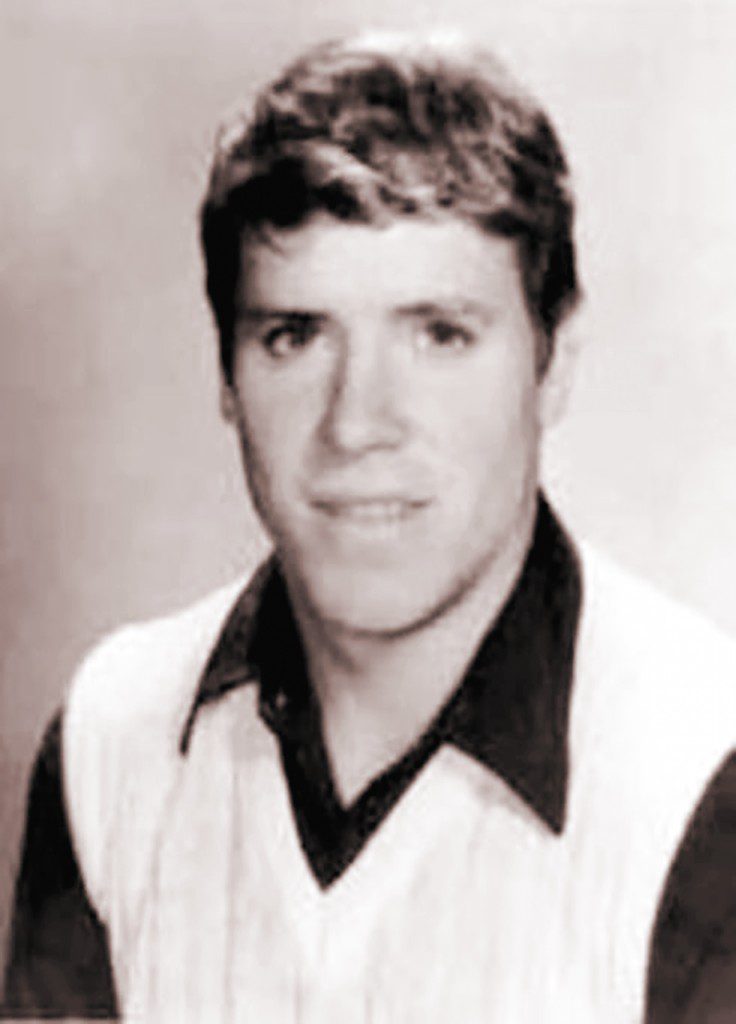
The Trial
Marsee’s story did not die with him. Betty Marsee had no intention of letting her son and what had happened to him – in her eyes, because of smokeless tobacco – be forgotten.
“She was angry from the beginning,” Jason Marsee says. “She didn’t quite know where to put that anger. She didn’t know quite what to do.”
Betty Marsee found two Ada attorneys, George Braly and Dania Deschamps-Braly, to take her case pro bono; she was going to take on U.S. Tobacco, the manufacturer of Happy Days, Skoal and Marsee’s favorite, Copenhagen. And she was going to make them pay. But what price could be put on her son’s life? Betty Marsee sued for $137 million – the equivalent of U.S. Tobacco’s net profits in 1983.
In 1986, attorneys for Betty Marsee and for U.S. Tobacco faced each other in a federal courtroom in Oklahoma City. From the beginning, dozens of U.S. Tobacco’s lawyers descended on the state like a hurricane, searching every crevice for information that could be used to cast doubt upon Marsee’s lifestyle. For local counsel, the corporation chose Andy Coats, then-sitting mayor of Oklahoma City and attorney with Crowe and Dunlevy and future dean of the University of Oklahoma College of Law. Also at the table every day of the trial was celebrity Walt Garrison, lending silent support to the U.S. Tobacco defense team.
“[Garrison] was there the whole time,” Hook says. “The trial lasted weeks, and he was there every day, sitting at the defense table. His tin of tobacco was in the back pocket of his jeans. When he stood up, you could see the ring. He was there…never said a word for three weeks, but he was there to be in front of the jury as part of the defense team.”
Hook at the time still lived in Ada and was trying to operate there full-time. His friends flew him to Oklahoma City in their private plane so he could testify as an expert witness for the plaintiff.
“[U.S. Tobacco’s] defense was to blame Sean’s lifestyle, which amounted to a little bit of beer and a lot of Mexican food,” Hook says.
The trial was a long, complicated matter, Coats recalls.
“We spent lots of time, lots of hours, and the company spent several million dollars,” Coats says. “It is one of those cases…in some ways, it’s a ‘bet your company’ case. If it turns out that snuff causes this kind of cancer, then obviously the company that makes smokeless tobacco is in danger.”
In the end, the jury sided with the company’s defense: Sean Marsee had not developed oral cancer from using tobacco products.
“They said that because he hunted and fished and ate what he caught, that is what caused cancer,” Jason Marsee recalls. “Hauling milk home from the dairy is what caused cancer. Hauling hay is what caused cancer.”
[pullquote]“We spoke to lots of doctors and pathologists across the country, but the bottom line was that the chief head and neck surgeon from M.D. Anderson [Cancer Center] in Houston testified that snuff didn’t have any more to do with that type of cancer than if it had been raining that day.”[/pullquote]“We spoke to lots of doctors and pathologists across the country, but the bottom line was that the chief head and neck surgeon from M.D. Anderson [Cancer Center] in Houston testified that snuff didn’t have any more to do with that type of cancer than if it had been raining that day,” says Coats. “Several people came up with ideas [about what caused Marsee’s cancer], but it didn’t fit with any pattern in previous medical history. The really knowledgeable physician, he was absolutely convinced that there was nothing in Sean’s life, that there was no other extrinsic cause [of the cancer].”
According to Hook, damning evidence against U.S. Tobacco was dismissed by Judge David Russell, with dire consequences for Betty Marsee’s claims.
“The plaintiff’s attorney had many pieces of incriminating evidence against the company, such as notes and copies of minutes of their board meetings where they talked about their mission to provide samples of Happy Days (the sweet, milder choice) and Skoal at rodeos,” Hook says. “They made comments at the meeting that they needed to get the youngsters using this. They [young consumers] could start by using Happy Days, because it was sugary-sweet and didn’t have a whole lot of nicotine kick. Get them started, then they’d move up to Skoal, then to Copenhagen. The judge would not allow that evidence to be brought into the trial.
“It was the smoking gun,” he continues. “If they could have gotten that before the jury, it would have been extremely hard for U.S. Tobacco to deny the plaintiff’s claims, but they couldn’t get it admitted. It really deflated the plaintiff’s team.”






















